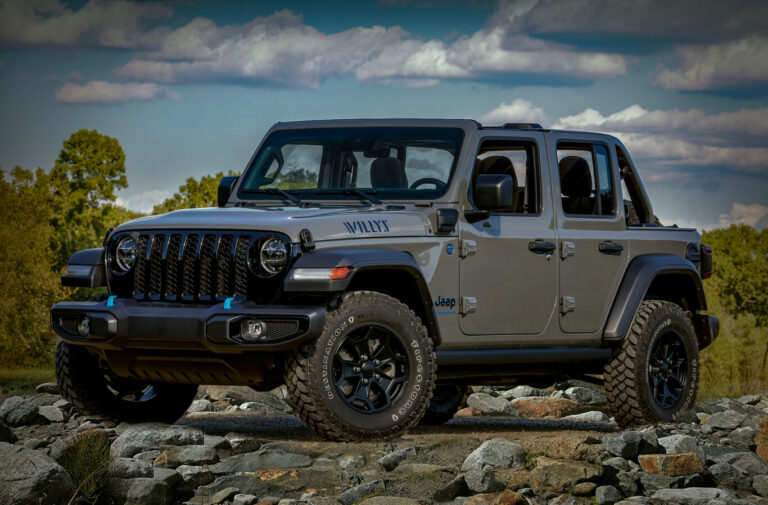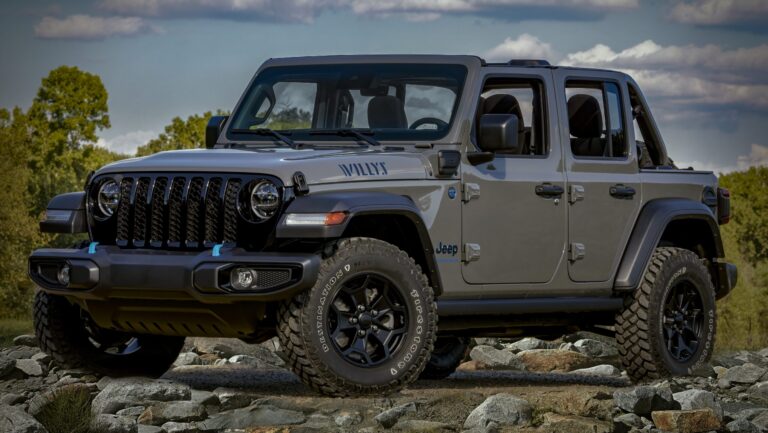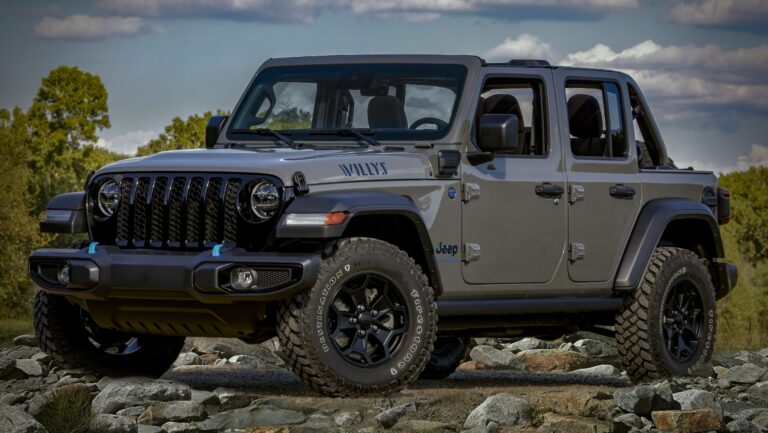Owner Type Jeep For Sale Philippines: Your Ultimate Guide to Owning a Filipino Icon
Owner Type Jeep For Sale Philippines: Your Ultimate Guide to Owning a Filipino Icon jeeps.truckstrend.com
Introduction: More Than Just a Vehicle – It’s a Lifestyle
In the bustling streets and scenic provinces of the Philippines, certain vehicles aren’t just modes of transport; they are cultural landmarks, symbols of ingenuity, and practical workhorses. Among these, the "Owner Type Jeep" stands supreme. Distinct from the iconic public utility jeepneys (PUJs) that ferry commuters, an Owner Type Jeep is typically a privately-owned, custom-built, and highly versatile vehicle. Often a family’s primary transport, a farm utility, or a cargo hauler, these jeeps embody Filipino resourcefulness – marrying the rugged durability of military surplus with local craftsmanship.
Owner Type Jeep For Sale Philippines: Your Ultimate Guide to Owning a Filipino Icon
For many Filipinos, owning an Owner Type Jeep is more than just acquiring a vehicle; it’s an investment in reliability, a statement of practicality, and a piece of national heritage. If you’re considering purchasing one, this comprehensive guide will navigate you through every aspect, from understanding its unique appeal to making an informed buying decision.
What Exactly is an Owner Type Jeep? A Deep Dive into Filipino Ingenuity
The story of the Owner Type Jeep begins with the post-World War II surplus of U.S. military Willys and Ford Jeeps. Instead of discarding them, enterprising Filipinos repurposed and rebuilt these sturdy machines. Over decades, this evolved into a thriving local fabrication industry. Today, an Owner Type Jeep typically refers to a vehicle built on a robust, often reconditioned, chassis – usually from a surplus truck or an older Japanese vehicle – fitted with a custom-fabricated body.
Key characteristics that define an Owner Type Jeep include:
- Robust Chassis: Built for durability, capable of handling rough Philippine roads.
- Diesel Engine: Predominantly powered by fuel-efficient and high-torque diesel engines, often sourced from Japanese surplus trucks (e.g., Isuzu 4BC2, 4BD1, Mitsubishi 4D30, 4DR5).
- Custom Bodywork: Locally fabricated steel or aluminum bodies, highly customizable in terms of seating configuration, cargo space, and aesthetic design. They range from simple, utilitarian designs to more elaborate, "owner-type SUV" styles.
- Utilitarian Design: Prioritizes functionality over luxury, often featuring open-air elements, bench seating, and ample ground clearance.
- Rear-Wheel Drive (RWD): Most are RWD, though some 4×4 conversions exist.
- Versatility: Used for personal transport, family outings, farm work, small business deliveries, and even as informal school service vehicles.
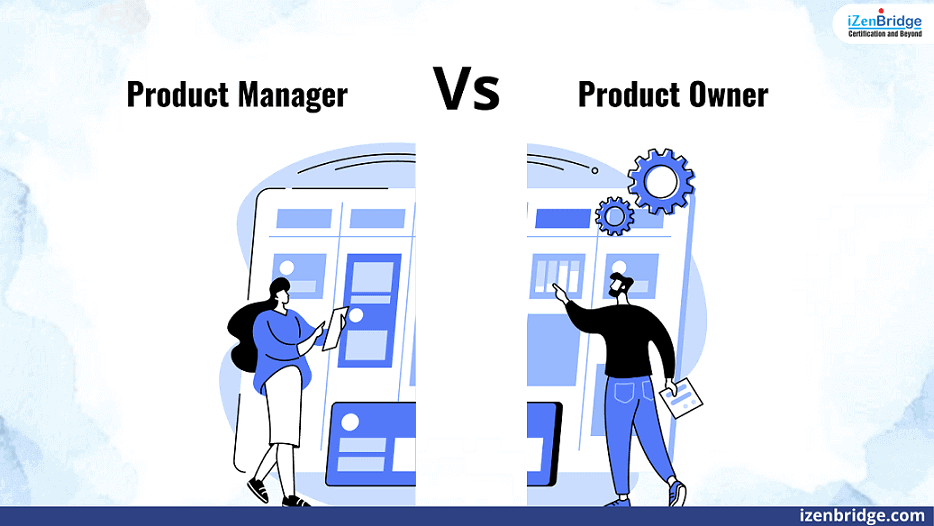
Unlike the brightly adorned, long-bodied PUJs designed for mass transit, Owner Type Jeeps are tailored for individual or family use, offering a blend of ruggedness and personal touch that modern mass-produced vehicles often lack.

The Enduring Appeal: Why Buy an Owner Type Jeep in the Philippines?
The continued popularity of Owner Type Jeeps isn’t merely nostalgic; it’s rooted in several compelling practical advantages:
- Unbeatable Affordability: Compared to brand-new cars or even second-hand imported SUVs, Owner Type Jeeps offer exceptional value for money. They provide reliable transport at a fraction of the cost.
- Durability and Reliability: Built like tanks, these jeeps are designed to withstand challenging road conditions and heavy loads. Their simple mechanicals mean fewer complex parts to break down.
- Remarkable Versatility: Whether you need to transport your family, haul agricultural produce, deliver goods for your small business, or simply navigate unpaved roads, an Owner Type Jeep adapts to various needs with ease.
- Ease of Maintenance and Repair: Parts for the common Japanese surplus engines are widely available and affordable. Most local mechanics are well-versed in diagnosing and repairing these vehicles, making maintenance straightforward and cost-effective.
- High Customization Potential: Owners can personalize their jeeps extensively, from paint jobs and interior finishes to adding roof racks, bull bars, or even modifying seating arrangements, making each jeep unique.
- Cultural Significance: Owning an Owner Type Jeep is a nod to Filipino heritage and ingenuity, connecting you to a long tradition of practical innovation.
- Strong Resale Value (for well-maintained units): Due to their utility and durability, well-maintained owner-type jeeps tend to hold their value relatively well in the local market.
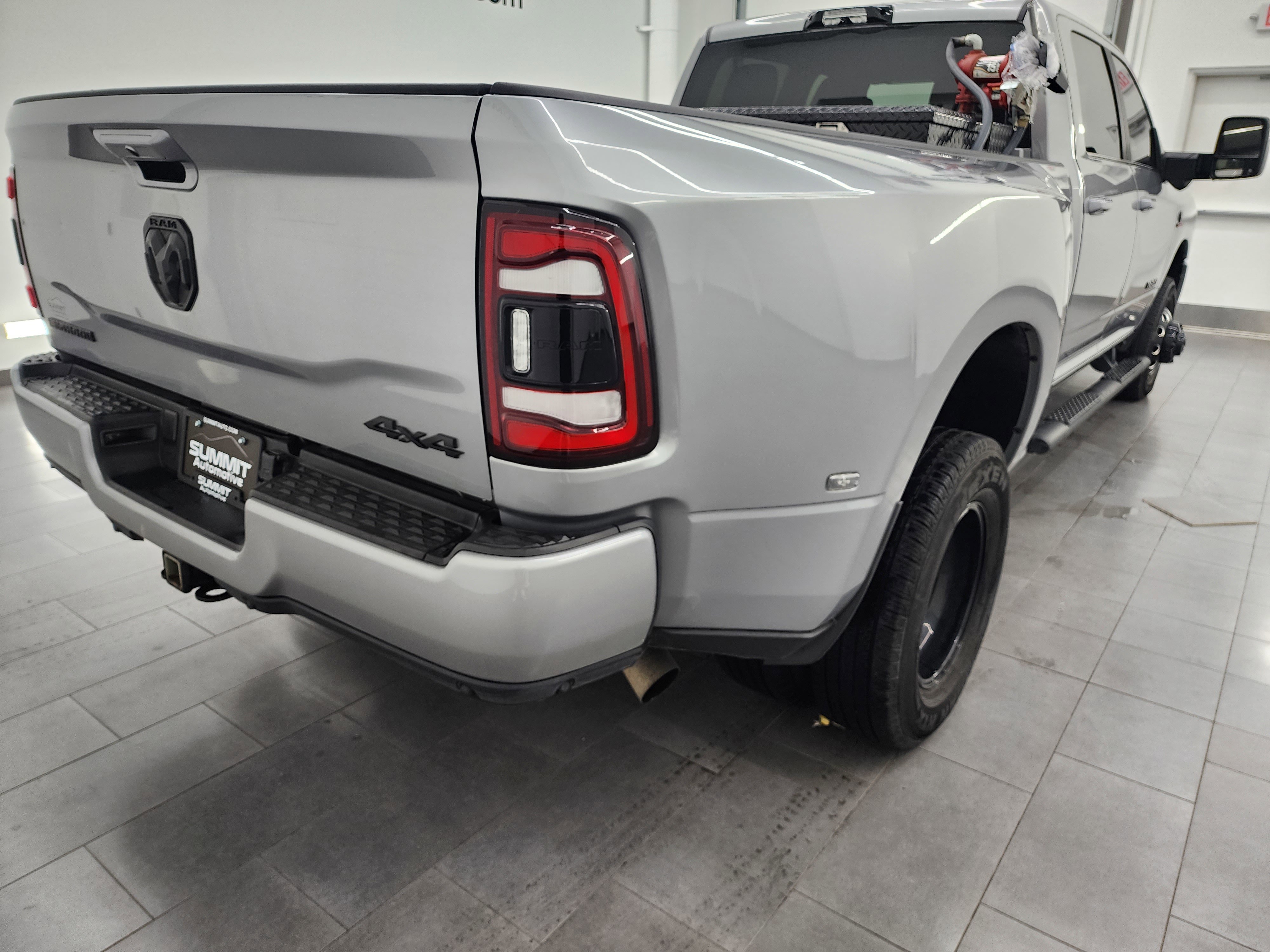
Navigating the Market: Where to Find Owner Type Jeeps for Sale
Finding the right Owner Type Jeep requires a bit of savvy. Here are the common avenues:
- Online Marketplaces:
- Carousell (formerly OLX.ph): A primary platform for buying and selling used vehicles in the Philippines. Use specific keywords like "owner type jeep," "owner type," or "jeep."
- Facebook Marketplace & Groups: Numerous Facebook groups are dedicated to buying and selling vehicles, including owner-type jeeps. Search for groups like "Owner Type Jeep Philippines," "Buy and Sell Jeep," or local community groups.
- Physical Dealerships / Used Car Lots: Some specialized used car dealers, particularly in provincial areas, focus on owner-type jeeps and surplus vehicles.
- Direct from Owners: Keep an eye out for "For Sale" signs (often handwritten) on jeeps parked in neighborhoods. Word-of-mouth is also a powerful tool in local communities.
- Local Fabricators/Builders: If you’re looking for a brand-new custom-built owner-type jeep, you can directly approach local jeepney body builders or fabricators. They can build one to your specifications.
Tips for Searching: Be specific with your search terms, utilize filters for location and price range, and always prioritize listings with clear photos and detailed descriptions.
Crucial Considerations Before Buying: A Comprehensive Buyer’s Guide
Purchasing an Owner Type Jeep, especially a used one, requires careful inspection. Here’s what to look for:
- Budget Assessment: Beyond the purchase price, factor in potential costs for immediate repairs, LTO registration renewal, transfer of ownership fees, and future maintenance.
- Thorough Condition Assessment:
- Engine:
- Start-up: Listen for unusual noises (knocking, grinding). Check for excessive smoke (blue indicates oil burn, black indicates incomplete combustion, white indicates water/coolant).
- Leaks: Inspect for oil, fuel, or coolant leaks under the engine.
- Power: During a test drive, check if the engine feels strong and responsive.
- Chassis and Frame: This is the backbone. Look for severe rust, cracks, bends, or evidence of major accidents. A misaligned chassis can lead to chronic handling issues.
- Suspension: Check shocks, leaf springs, and bushings for wear and tear. Bounce each corner of the jeep to test the shocks; it should settle quickly.
- Brakes: Test the brakes during the test drive. They should be firm and stop the vehicle effectively without pulling to one side. Check for fluid leaks around the wheels.
- Electrical System: Test all lights (headlights, tail lights, signal lights, brake lights), horn, wipers, and gauges.
- Body: Inspect for significant rust, especially on the floor, undercarriage, and around door frames. Check the quality of the welds and overall body fabrication.
- Tires: Check tread depth and look for uneven wear, which could indicate alignment issues.
- Engine:
- Documentation is King: This is perhaps the most critical aspect.
- Official Receipt (OR) and Certificate of Registration (CR): Ensure these documents are original, match the vehicle’s details (chassis number, engine number), and are up-to-date.
- Deed of Sale: Verify that the seller is the registered owner.
- Clearance: Ask for an LTO (Land Transportation Office) alarm clearance to ensure the vehicle isn’t stolen or involved in any legal disputes.
- No Encumbrance: Check if the vehicle has any outstanding loans or liens.
- Transfer of Ownership: Be prepared for the process of transferring ownership at the LTO.
- Test Drive: Never skip this. Drive it on various road conditions if possible. Pay attention to:
- Steering: Does it pull to one side? Is there excessive play?
- Transmission: Does it shift smoothly? Are there any grinding noises?
- Brakes: As mentioned, check for effectiveness and stability.
- Overall Feel: Does it feel stable and safe to drive?
- Seek Expert Advice: If you’re not mechanically inclined, bring a trusted mechanic to inspect the jeep. Their expertise can save you from costly mistakes.
Understanding the Price Spectrum: Factors Influencing Cost
The price of an Owner Type Jeep can vary significantly, typically ranging from PHP 60,000 to over PHP 300,000. Several factors influence this:
- Overall Condition: The most significant factor. A well-maintained, rust-free jeep with a strong engine will command a higher price than one needing extensive repairs.
- Engine Type and Age: Newer, more powerful, and fuel-efficient diesel engines (e.g., common rail diesels) will increase the price. Older, less efficient engines will lower it.
- Body Type and Features: Custom-built bodies with more elaborate finishes, comfortable seating, enclosed cabins, air conditioning (rare but possible), and accessories (e.g., sound system, roof rack, mags) will be more expensive.
- Registration Status: A jeep with updated LTO registration is more valuable than one with expired papers, as you’ll incur penalties and hassle.
- Location: Prices can sometimes vary regionally, with some areas having more competitive markets.
- Negotiation: Always be prepared to haggle. Sellers often list prices with room for negotiation.
Maintaining Your Owner Type Jeep: Tips for Longevity
Once you own an Owner Type Jeep, proper maintenance is key to ensuring its longevity and reliability:
- Regular Oil Changes and Fluid Checks: Adhere to the recommended service intervals for engine oil, transmission fluid, differential oil, and brake fluid.
- Tire Care: Regularly check tire pressure and rotate tires to ensure even wear.
- Brake Inspection: Periodically check brake pads/shoes and fluid levels.
- Rust Prevention: Wash your jeep regularly, especially the undercarriage, to remove mud and salt. Address any paint chips or scratches promptly to prevent rust from spreading. Consider applying anti-rust coatings.
- Prompt Repairs: Don’t let minor issues fester. Address unusual noises, leaks, or performance drops immediately to prevent them from becoming major problems.
- Find a Reliable Mechanic: Build a relationship with a mechanic who specializes in or is very familiar with owner-type jeeps and surplus engines.
Potential Challenges and Practical Solutions
While owning an Owner Type Jeep is rewarding, be aware of potential challenges:
- Challenge: Rust: Due to the tropical climate and often older base materials, rust is a common enemy.
- Solution: Regular washing, immediate repair of paint damage, and applying rust-proofing treatments. Consider a jeep with a fiberglass body if available.
- Challenge: Mechanical Issues (especially with older units): Wear and tear are inevitable.
- Solution: Budget for potential repairs. Prioritize units with well-maintained engines and chassis. Build a relationship with a trusted mechanic and reliable parts suppliers.
- Challenge: Documentation Issues: Unclear papers can lead to legal complications.
- Solution: Thoroughly verify all documents (OR/CR, Deed of Sale, LTO clearance) before purchasing. Never buy a jeep with incomplete or suspicious papers.
- Challenge: Fuel Efficiency (older engines): Some older diesel engines might not be as fuel-efficient as modern vehicles.
- Solution: Regular engine tune-ups and maintenance can optimize fuel consumption. Some owners opt for an engine swap to a newer, more efficient model if the budget allows.
- Challenge: Limited Safety Features: Owner Type Jeeps typically lack modern safety features like airbags, ABS, or crumple zones.
- Solution: Drive defensively, maintain safe speeds, and ensure basic safety components like seatbelts (if installed), lights, and brakes are in perfect working order.
Representative Price Table: Owner Type Jeep For Sale Philippines
Note: Prices are estimates and highly dependent on actual condition, specific engine model, customization, and negotiation. This table serves as a general guide.
| Condition Category | Engine Type (Common) | Body Type/Features | Estimated Price Range (PHP) | Key Considerations |
|---|---|---|---|---|
| Needs Major Repair | Various (often non-running) | Basic, heavily rusted | ₱60,000 – ₱120,000 | For experienced mechanics or those planning a full restoration. Expect significant investment in parts and labor. |
| Fair Condition | Isuzu 4BC2/4BD1, Mitsu 4D30/4DR5 | Basic, some rust, minor dents | ₱120,000 – ₱180,000 | Runs but needs immediate attention to mechanics, bodywork, or electrical. Good for budget-conscious buyers willing to do work. |
| Good Condition | Isuzu 4BD1, Mitsu 4DR5, Newer Diesels | Well-kept, minor flaws, some custom add-ons | ₱180,000 – ₱250,000 | Reliable daily driver with current registration. May have minor cosmetic issues or require routine maintenance soon. |
| Excellent Condition / Newly Built | Isuzu 4BE1/4HF1, Toyota 2C/3C | Custom-fabricated, pristine paint, new interior, accessories | ₱250,000 – ₱350,000+ | Ready to drive, minimal issues. Often comes with updated papers. Higher end for newly built or meticulously restored units. |
Frequently Asked Questions (FAQ)
Q1: Is an Owner Type Jeep fuel-efficient?
A1: Generally, older diesel engines in owner-type jeeps are not as fuel-efficient as modern common rail diesel engines found in new SUVs. However, their robust nature and lower initial cost often offset this. Newer engine swaps can improve efficiency.
Q2: Can I use an Owner Type Jeep for long drives?
A2: Yes, many Filipinos use their owner-type jeeps for long provincial drives. Ensure the vehicle is well-maintained, especially the cooling system, brakes, and tires, before embarking on a long journey.
Q3: Are parts hard to find for Owner Type Jeeps?
A3: No, parts for common Japanese surplus diesel engines (Isuzu, Mitsubishi, Toyota) are widely available in the Philippines, often at very affordable prices, especially in auto supply stores and surplus shops.
Q4: What’s the main difference between an Owner Type Jeep and a PUJ (Public Utility Jeepney)?
A4: An Owner Type Jeep is privately owned and primarily used for personal, family, or business purposes. A PUJ is a public transport vehicle operating on a fixed route with a franchise from the LTFRB (Land Transportation Franchising and Regulatory Board). Owner-type jeeps are typically shorter and have more varied designs.
Q5: Is it legal to customize an Owner Type Jeep?
A5: Yes, basic customization is legal as long as it doesn’t compromise safety or violate LTO regulations (e.g., proper lighting, no excessive modifications that alter the vehicle’s classification without LTO approval). Major modifications might require LTO inspection and approval.
Q6: How much does it cost to register/transfer ownership of an Owner Type Jeep?
A6: Registration fees vary annually but generally range from PHP 1,500 – PHP 4,000 depending on gross vehicle weight. Transfer of ownership fees, including documentary stamp tax and other charges, can add another PHP 1,000 – PHP 3,000 or more, plus any penalties for expired registration.
Conclusion: A Testament to Filipino Practicality and Heritage
The Owner Type Jeep remains an integral part of the Philippine landscape, a testament to local craftsmanship, resilience, and practicality. Far more than just a means of transport, it embodies a unique blend of utility, affordability, and cultural significance.
For those seeking a versatile, durable, and character-filled vehicle that can handle the diverse demands of Philippine roads and lifestyles, an Owner Type Jeep presents a compelling option. By approaching the purchase with careful consideration, thorough inspection, and a clear understanding of its unique attributes, you can acquire a reliable workhorse and a cherished piece of Filipino heritage. It’s an investment not just in mobility, but in a slice of the authentic Philippine experience.

